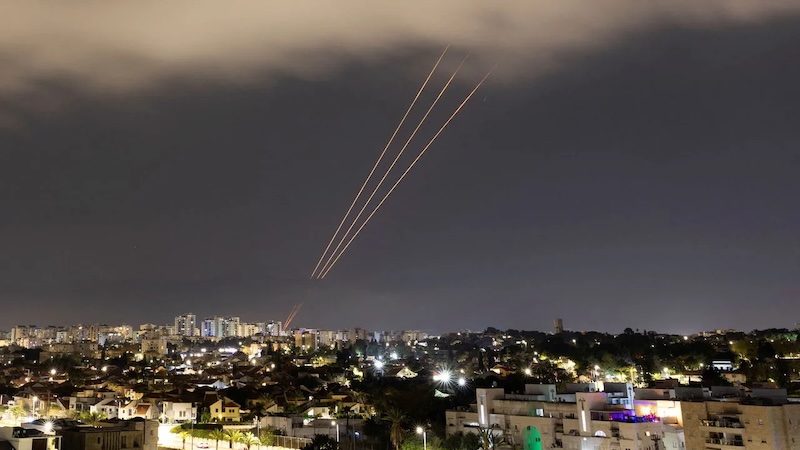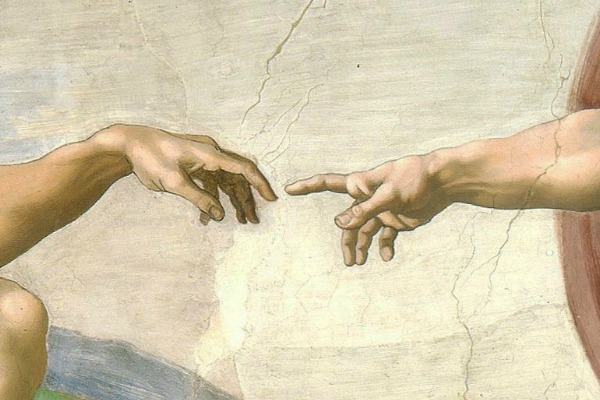
Kenan Camurcu
The attacks launched by Israel in the capital Tehran and other cities starting from 3 AM on Friday, June 13th, resemble the 1967 June War, when Egyptian air forces were struck on the ground. Just as Egypt was initially disqualified in the '67 war, Iran's military system was paralyzed in the first move. With over 20 commanders from the army and Sepah's command structure killed, the command-and-control chain was disrupted, and the defense system completely collapsed.
Iran's military fiasco is a product of its political regime. In this absolute, monarchy-worse, rigid one-man regime, the system cannot function independently. When the command echelon of the army and Sepah were killed, the glorious Sepah officers merely watched the Israeli attacks until Khamenei made new appointments. Then, during Israel's umpteenth wave of attacks, the air defense system finally kicked in, albeit partially, and they had to settle for a face-saving score by downing a few UAVs.
While Israel attacking with 200 planes is one thing, Mossad carrying out assassinations with kamikaze drones sent from a UAV base established in the heart of Tehran, right under Khamenei's nose, proved that Israel is a hundred years ahead in military technology. It also showed that the military capability of the absolute Velayat-e Faqih regime consists solely of edited videos.
The commander of Khamenei's favorite Quds Force has been missing for three days, and there's been no explanation from the Iranian administration. The claim of Qaani's death in Sepah media is attributed to Israeli sources. How can a military capability and capacity, unaware of Qaani's fate, demonstrate any presence against Israel?
While numerous simultaneous explosions were heard in the capital Tehran, state media, on television, displayed a subtitle: "Unidentified sounds." They didn't even say "explosion sound." Yet, Tehran residents were broadcasting both images and information live on social media at the time. We know from many examples what happens to a political regime when it falls so far behind its people. Not a single successful instance of a blackout regime using this method exists.
In Israel, while the army was fighting, Netanyahu went to court to testify in his corruption case. This means the system is working. This is what democratic institutions and rules are about. At that time, Netanyahu's opponents were chanting resignation slogans outside his home, and none of the protestors were arrested on absurd charges like treason or attempting to overthrow the regime. In Iran, all signatories of an open letter calling for Khamenei's resignation are imprisoned, facing 15-30 years in jail.
It seems Iranians didn't take Trump's 60-day ultimatum seriously. It's clear they were completely unprepared for the attack on the 61st day. Perhaps this is due to the systemic effect of Khamenei's excessive self-confidence in his own thoughts. In a video recorded last year while he was addressing his supporters during a missile launch toward Israel, he said: "They're exaggerating the issue and trying to scare cowards with war. I will tell you two sentences: There will be no war, and we will not negotiate with America." His supporters cheered, with "takbirs" and so on. But they rushed to negotiate with America, and war still broke out.
Lies are a very important tool for autocrats, tyrants, and dictators. The political power lies to boost its supporters' morale, and the supporters, in turn, need that lie. So, no one is deceiving anyone. They listen knowing it's a lie and participate in the propaganda. The goal is to retain power and financial resources.
Some might recall Information Minister Sahhaf, who made statements like "we won the war, we repelled the enemy" to cameras while America was invading Iraq in 2003. The American phrase "talking like Baghdad Bob" comes from there. The radicals in Tehran are today's Baghdad Bobs.
Saddam, when he attacked Iran in 1980 and occupied cities on the western border, arrogantly declared that he would drink his evening tea in Tehran. But with a mobilization for homeland defense, Iranians not only quickly liberated the occupied territories but also carried the war deep into Iraq. Now, however, the Israeli attack doesn't concern Iranians. Nobel Peace Prize laureate Shirin Ebadi stated, "This is not our war. It's the war of the Islamic Republic. The result of endless lust for power." Many Iranians are asking, "Who gave you the mission to destroy Israel? Where do you get the right to impose deprivation, sanctions, hardship, poverty, and war on us because of this? What sense does it make for Iranians to fight a country with no shared border?"
Regional countries are helping Israel shoot down Iranian drones. They are insulted as "traitors," but do they have to be part of Iran's tension-driven politics? How is the correctness of this policy determined? It's self-evident.
Riyadh has declared its jihad to turn the Middle East into a new Europe, speaking of a prosperous future with a high quality of life and extensive social freedoms. How will Khamenei's world, which is the exact opposite—a Shiite version of ISIS—exist in that future?
For a long time, Tehran's rulers have been trying to cope with a depressive loneliness, both domestically and internationally. But they haven't succeeded. How could they? While facilities in Tehran and other cities are being bombed, and high-ranking generals in the command echelon are killed overnight, the police department sends an SMS to a female driver: "It has been detected by cameras that you uncovered your head 4 times on the Qom-Tehran highway. Therefore, your vehicle has been impounded for 1 week. Please take it to the specified parking lot immediately, otherwise your vehicle will be confiscated by the police."
Does such a regime have a chance or a right to exist?
When Ahmadinejad's deputy, Hamid Beqai, was sent to prison on corruption charges, he exposed a statement made by Judiciary Chief Mohseni Ejei in the early 90s, when he was serving as Tehran's deputy prosecutor general in the Ministry of Intelligence. Ejei had warned him: "This regime is not permanent. Don't write things that will cause us trouble when the regime changes."
During the Mahsa Amini protests, one of the Basij force commanders complained that when they went to the Ekbatan neighborhood in Tehran, irons, ovens, and even refrigerators were thrown on their heads from buildings. He lamented, "When did we become like this?" In the mid-80s, Khomeini had warned the regime's elites: "Listen to the people's assessment. Do not weaken the Republic. Otherwise, a day will come when the issue won't even be returning to 1979. A Fatiha will be recited for all of your souls."
The absolutist regime that Khamenei's followers call "absolute Velayat-e Faqih" is a dictatorship in every sense. It is pure, unadulterated tyranny. And the only thing that matters to the apparatus of this regime is its survival. They know that continuing the war with Israel will lead to the regime's demise if they don't maintain conflict.
They shut down the internet to prevent people from organizing. However, Starlink support thwarted this attempt. Iranians used to get satellite dishes to watch foreign television. Now, homes have Starlink, and communication continues.
Radio Farda interviewed former Mossad chief Efraim Halevy. He says the outcome of the war depends on the Iranian leadership's decision. If they want to escalate the war, Israel is prepared to do more. The widespread belief is that Israel considers preventing Iran from acquiring nuclear weapons and changing its political regime, which is a threat to the region, to be one and the same.
Israelis might also believe they are repaying a historical debt by attacking the Islamic Republic regime – the debt to the magnificent King Cyrus (Kouroush) who saved them from the Babylonian captivity. In 539 BC, the Persian ruler Cyrus ended Babylonian tyranny and enabled the Israelites to return to Judah and rebuild the Qibla (Temple). While gratitude is commendable, the US invasions of Afghanistan and Iraq proved that exporting democracy by force of arms is not possible. The masterpiece of Persian mythology, the lion with a sword, cannot be brought back by a "rising lion." Whatever needs to be done, the Iranian people will do.
Translated by Gemini





0 Comments